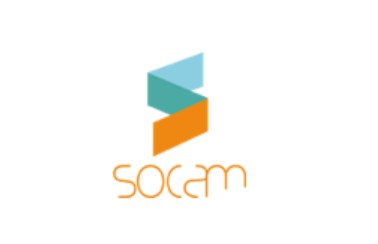IMDEA Networks

Institute IMDEA Networks launches multi-device open source operating system project
14 June 2012

The research project, carried out in cooperation with two industrial partners, Zed and Factory Holding Company 25, is developing a new paradigm in the area of operating systems for internet-connected devices, based on open source code.
As we progress towards a digital and information based society, every phase towards the development of a worldwide communications infrastructure seems to focus more and more into convergence and integration of the various devices, networks and operating systems available.
Access to the internet by means of mobile IT devices is growing at an unprecedented speed. Mobile devices use a variety of communication technologies to operate, which imposes a double-edged sword challenge to its growth and development. It is now possible to network multitude of devices and provide a great number of innovative services, but it is also imperative that such devices, networks and services are able to operate compatibly, that is, through operating systems that adapt to the demands posed by the increasing complexity and number of such devices, networks and services.
To this end, Institute IMDEA Networks, Zed and Factory Holding Company 25 have launched a new research program funded by the Spanish Ministry of Industry, Energy and Tourism (Ministerio de Industria, Energía y Turismo), through its AVANZA program, aimed at developing a new paradigm in the area of operating systems for internet-connected devices, based on open source code. The program, called SOCAM – Multi-device Open Source Operating System (Sistema Operativo de Código Abierto Multi-dispositivo), will provide an appropriate ecosystem for the current massive development of the services and mobile applications industry, while at the same time allowing for the extraction of all the potential capabilities of any present or future connected device. The project will cover the various components of such devices, from processing power to battery consumption, screen, memory, database access, sensors or chips. The project commenced in October 2011 and will conclude in September 2013.
The research will be carried out with the aim to create a new experience for the common user, independently of whether the device used to access the network is a mobile telephone, a tablet, television, M2M, or other. What is more, this flexibility will facilitate the creation of new applications, as they will all be based on the same operating system. This effort at standardization of a networking operating system will benefit both vendors of networking equipment and of network-attached devices, as they will be able to rely on an open source standard that shall evolve independently of proprietary interests. As a result, companies focused on the development and implementation of Internet services and applications should see their investment risks reduced, as their technology and equipment is more likely to integrate seamlessly with the pre-existing, and therefore improving the potential for economic growth within that sector.
The SOCAM project is part of Institute IMDEA Networks’ broader commitment to research that accounts for social and economic factors. With this project, the Institute pursues the transfer of new scientific developments to the industrial arena, with the consequent impact on society, who is seen as the ultimate recipient and end-user of the quality of life benefits that the process of innovation and scientific advance provides. SOCAM builds on the Institute’s wider scientific activities in mobile communications and computer networks, including research on network protocols and algorithms and on wireless networking.
More information:
- Madri+d notiweb, published 03 July 2012 (in Spanish)



Recent Comments